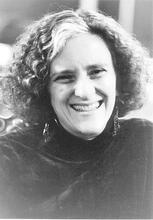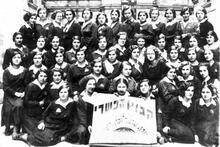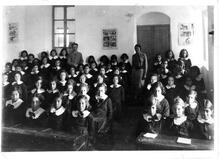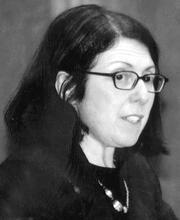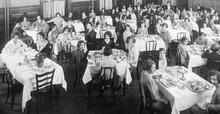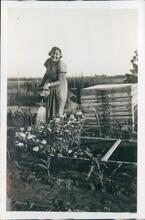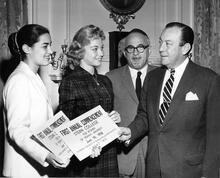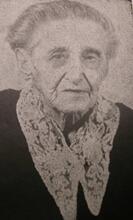Janie Jacobson
Janie Jacobson’s love of Jewish tradition led her to create biblical children’s plays that were performed nationwide. Jacobson was born and raised in Londo, and immigrated to New York at age thirty. She became active in the Jewish community as a settlement worker, founder of Temple Beth El’s Bible School, and secretary of the New York chapter of the National Council of Jewish Women. But it was her plays for which she was most noted, among them For Liberty, a patriotic Hanukkah play, in 1903; Joseph and His Brethren in 1905; Ruth the Moabitess in 1910, and Esther in 1912. The plays were popular across the country, and her literary efforts were considered highly unusual for a woman of her time.
Article
Combining her Jewish background with her skill and penchant for writing, Janie Jacobson succeeded as a biblical playwright. The children’s plays she authored were performed nationally. Among them were For Liberty (1903), a play about Jewish patriotism for the Jewish holiday of Hanukkah; Joseph and His Brethren (1905), a play based on scripture in four acts; Ruth, the Moabitess (1910), a scriptural play in three acts; and Esther (1912), a scriptural play in five acts. In addition to being an accomplished writer, she was a talented musician.
Janie Jacobson was born in London, England, in about 1860, and lived there for thirty years. She was the niece of former mayor Nathan Barnert of Paterson, New Jersey. After she and her husband, Selly Jacobson, settled in New York City, she became a dynamic member of the growing Jewish community there. Jacobson participated actively as a Jewish settlement worker, founded the Bible School of Temple Beth El in New York, and served as secretary of the National Council of Jewish Women of New York City.
While Jacobson’s Jewish social activism was fairly representative of educated Jewish women in the United States during the early twentieth century, her literary career was unique for that period. She arrived in the United States during the first wave of immigration from Eastern Europe, but as a cultured person from England whose native tongue accommodated her relatively quick adaptation to American society, she possessed great advantages over her contemporaneous immigrants. Because little is known of her Jewish orientation, one can only assume from her plays that she was familiar with and interested in Jewish religious culture. Janie Jacobson made her mark as one of the few Jewish women in America at that time who were both knowledgeable in Judaic subjects and successful at wielding the pen creatively in those realms.
Janie Jacobson died in New York on July 2, 1915. She was survived by her husband and sister.
Selected Works by Janie Jacobson
Esther (1912).
Joseph and His Brethren (1905).
For Liberty (1903).
Ruth, the Moabitess (1910).
AJYB 18 (1916–1917): 108.
Bzowski, Frances Diodato. American Women Playwrights, 1900–1930 (1992).
Obituary. NYTimes, July 3, 1915, 7:6.

